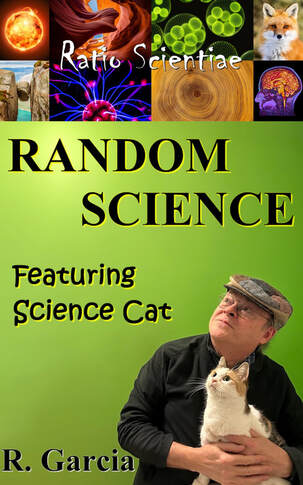 There are two things I like to do. The first, is that I tend to look at stuff that many people don’t care about and visit places that many people will not visit. Some things that interest others will definitely catch my attention, but I am mostly drawn to the unusual even if it is sometimes boring. The second thing that I like to do, is check out the science behind things. So, you combine one with the other, and what do you get? Random Science! Yes, that is the title of my most recent book. In it, I check out the science behind a motley assortment of things ranging from bones, clouds, rocks, cicadas, and carnivorous plants, to amusement park rides, musical saws, phonographs, and singing wine glasses. But that is only part of the story. This book also features a cute cat which has become the mascot of my website and which appears in the book under her professional name, Science Cat. Science Cat helps me to present some awesome science facts as well as to showcase the science behind cats like herself. This book is part trivia and fun facts, part nature writing and how things work, and part cats. So if you are interested in an eclectic mix of the interesting, the mundane, and the curious, join Science Cat and me in the exploration of Random Science! You can see the book and read a sample following this link.
0 Comments
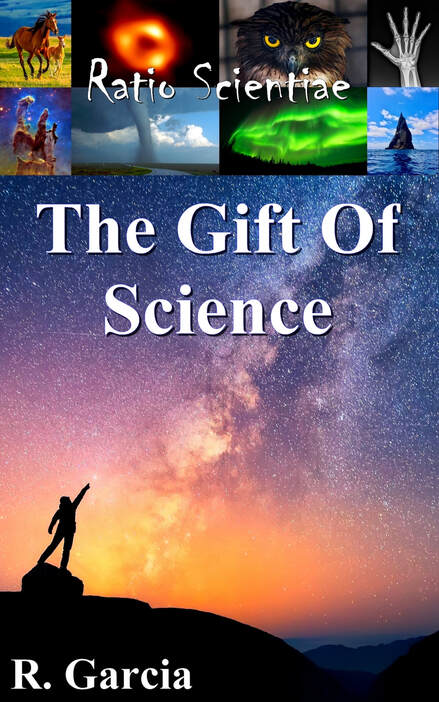 I have finally published the second book of essays based on my blog! The book is organized around several unifying themes, one of which is what I call “the gift of science”. When people hear this, they probably think of medical advances or technology useful for everyday life, but the gift of science goes way beyond that. As I explain in this book, this gift is something much more fundamental, something that is necessary for all of us to truly be free, and something, in fact, that most people take for granted and don’t really think about much. Also, sadly, the gift of science is something that numerous individuals reject. Be it global warming and COVID-19 severity deniers, creationists, antivaxxers, flat Earthers, or Qanon, in today’s polarized and confrontational environment, evidence, facts, and reason have been replaced by feelings and beliefs. Healthy skepticism has been replaced by a rabid irrational skepticism mired in ignorance, misinformation, and adherence to conspiracy theories. And confidence in those who have been trained to observe and discover reality has been replaced by a deep-seated mistrust fueled by all sorts of grievances. With this book, I hope to push back against all this and help as many as I can to once again accept the gift of science. This book also addresses a number of specific questions and issues ranging from the serious to the humorous. Among them are: What happens when scientists dream? Is it true that nothing is impossible? What are the best Big Bang Theory nerd themes? In science is it enough to be right? Who created life, the mad scientist or the scientist? Can science operate in a vacuum? Can believers and skeptics agree on anything when it comes to the supernatural? Will there be a gospel for the age of space exploration? What are the applications of evolution? Is the summit of the tallest mountain also the closest to outer space? Is there a fine line separating the sublime from the ridiculous? Do we really want to be in harmony with nature? Are scientists speaking mumbo jumbo? Why are some genes known as the “Halloween Genes”? What is a cation afraid of? And, if a scientist wins a Nobel Prize, does he/she still have IT? As in my previous books, Science Can Be Right Because It Can Be Wrong, this book is structured into several sections dealing with the nature of science, how science works and how it doesn’t, and what is and isn’t science. There also are stories about science and scientists, a section addressing how you relate to science, as well as sections dealing with issues that are fun and of interest. Finally, I also include some bad science jokes and puns, and all-purpose whimsy. If you have enjoyed reading my posts over the past few years and have benefited from them, then purchasing this book (or my books of short stories) is an excellent way to support my work. The book is available on Amazon as an ebook. If you don’t have a Kindle, you can read it with a Kindle App on your phone or tablet, or you can read it directly on the cloud section of your Amazon account using Amazon’s inbuilt e-reader. If you read my book, I would appreciate if you can please leave a review on its Amazon page. I hope you like my book. Science on! 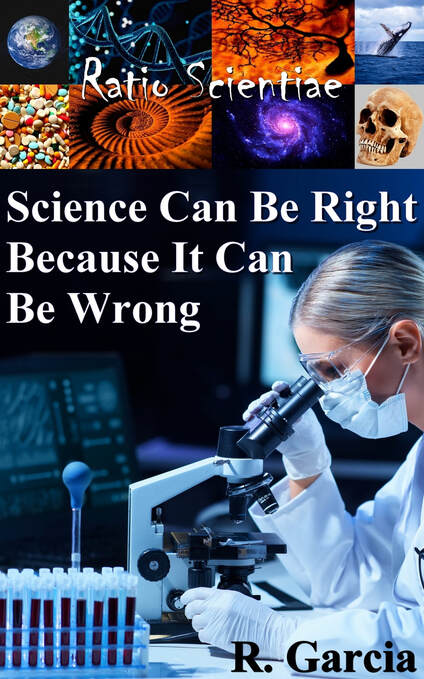 I want to let everyone know that I have finally published my book! This book is based on my blog posts from the past few years. It is organized around a number of unifying themes, one of which is why science can be right. Some people who attack science provide a laundry list of the many times science has been wrong about something and then triumphantly ask: If science can be wrong, how can science possibly generate reliable knowledge on which we can base important decisions that will affect society and the world? In this book I point out the reason this attack is misguided. Science can be right, because it can be wrong! Yes, the fact that science can be wrong is actually one of its strengths. The fact that science can make mistakes should actually increase our confidence in science! Why this is the case is explained in the book. This book also addresses a number of questions involving science and other topics. Among them are: Can anyone be a scientist? Can you win an out-of-body gold medal? What is heroic science? Is the only good scientist a blind scientist? Why does science have to be defended from the unreasonable man? Is science still cool if it affects you? What does science have to say about zombies? Do you know more than the experts? What are some of the stories of the monks and nuns of science? Can being a scientist immunize you against fearing the supernatural? How do we know there is not a conspiracy by scientists? How do you tell the difference between rational and irrational skeptics? Is a mind in the gutter a good thing to have in science? If a tree falls in a forest and there is no one around to hear it, does it make a sound? If you feel faint while reading the word “hippopotomonstrosesquippedaliophobia”, does this mean you have it? And, of course: Why is Schrodinger's cat wanted dead and alive? In this book I have endeavored to combine thoughtful explanations of the how and why of science with the examination of topics that are both informative and interesting, and I have added enough jokes, stories, anecdotes, and all-purpose whimsy to hopefully balance the more serious parts. If you have enjoyed reading my posts over the past few years and have benefited from them, then purchasing this book (or my books of short stories) is an excellent way to support my work. The book is available on Amazon as an ebook. If you don’t have a Kindle, you can read it with a Kindle App on your phone or tablet, or you can read it directly on the cloud section of your Amazon account using Amazon’s inbuilt e-reader. If you read my book, I would appreciate if you can please leave a review on its Amazon page. Thank you very much, and be on the lookout as there are more books to come! Take care and science on! Note: the image belongs to the author and can only be used with permission. The adult world is in many ways a betrayal of all the magic and wonder we experienced as a child. When we grow up, we discover that most of the time grinches do not return stolen toys, wolves devour little pigs, Bambi gets shot and eaten, tornados will kill you rather than take you to Oz, and wishing upon balls of burning gas hurtling thought the cold void of space many light years away doesn’t achieve much. More often than not, when we become adults, all the stories that wowed us as children are shelved under “fantasy.” And this is understandable. Growing up facing the endless stream of challenges and frustrations that the average person faces has a way of dulling our senses. Sure we survive, and we have our victories. But the scars of our battles, the accumulation of unrealized dreams and stifled hopes, tend to make many people cynical. Some look back upon childhood as a cruel hoax. Others do view it as a precious experience that they long for and cherish, but still an experience with little practical application for grownups. And finally, others forget it or don’t think about it that much. After all, they may reason, to survive in the adult world we cannot be like children. And what can the world of a child possibly teach us about dealing with the complexities and brutal realities of the real world? My opinion of childhood used to be a mix of the above: until I began to write. Then one day I saw a picture of an animal in a particular situation and a little girl came out of nowhere in my mind. The girl took a look at the animal and excitedly went over to tell her dad she had found a “zebra.” This dad was skeptical of the discovery made by this girl whose name is Nell. Nevertheless, he and his wife Rhonda chose to take Nell to look for the zebra and, to quote Robert Frost’s immortal poem, “that…made all the difference.” I won’t tell you the ending of this short story but suffice it to say that the animal Nell saw turned out to be part flesh and part metaphor. To my surprise, four other stories involving Nell and her family followed. A brave insect set forth to where no insect had gone before, Poe’s poem “The Raven” came to life in a very particular way, a Christmas tree acquired meaning, and a long-forgotten superhero made a triumphant return. In these five stories the skeptical world of adults collided with the magical world of childhood and sparks of wisdom flew everywhere. I had rediscovered the ability to see the world through the eyes of a child. I say “rediscovered” because it was always there, only I didn’t use it. So I gathered these tales together in a book of “children’s stories for grownups,” and I published them on Amazon as an ebook to share my epiphany with others. The stated aim of the book is to help us discover or rediscover some of the amazing things that children can teach us adults about life. I want to let my readers know that I have published a paperback edition of The Sun Zebra, so if instead of an e-book you want a physical copy of the book, you can find it on Amazon here. The images are property of the author and cannot be used without permission. 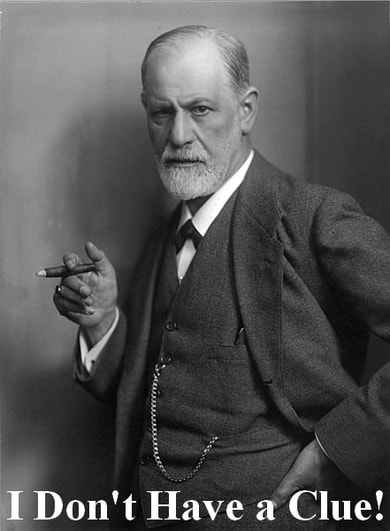 Sigmund Freud Sigmund Freud What indeed do spirit women want? Well, if good old Sigmund couldn’t figure it out with the real thing, there is no way he’d fare any better with the spirit version. I mean, for heaven’s sake, some people claimed the poor guy couldn’t even tell you when a cigar was just a cigar! But that’s another story. The point is, I published a book of short-stories on Amazon entitled Spirit Women which examines the motivations and desires of, well…spirit women. If you read my book, it will take you to battlefields, art museums, psychic joints, drawbridges, deserts, cemeteries, mansions, and family homes; and it will introduce you to these entities and their effects on the men with whom they interact. The stories range from the psychological to the paranormal, and they will thrill you and fulfill you! How do I know that? I’m a scientist! 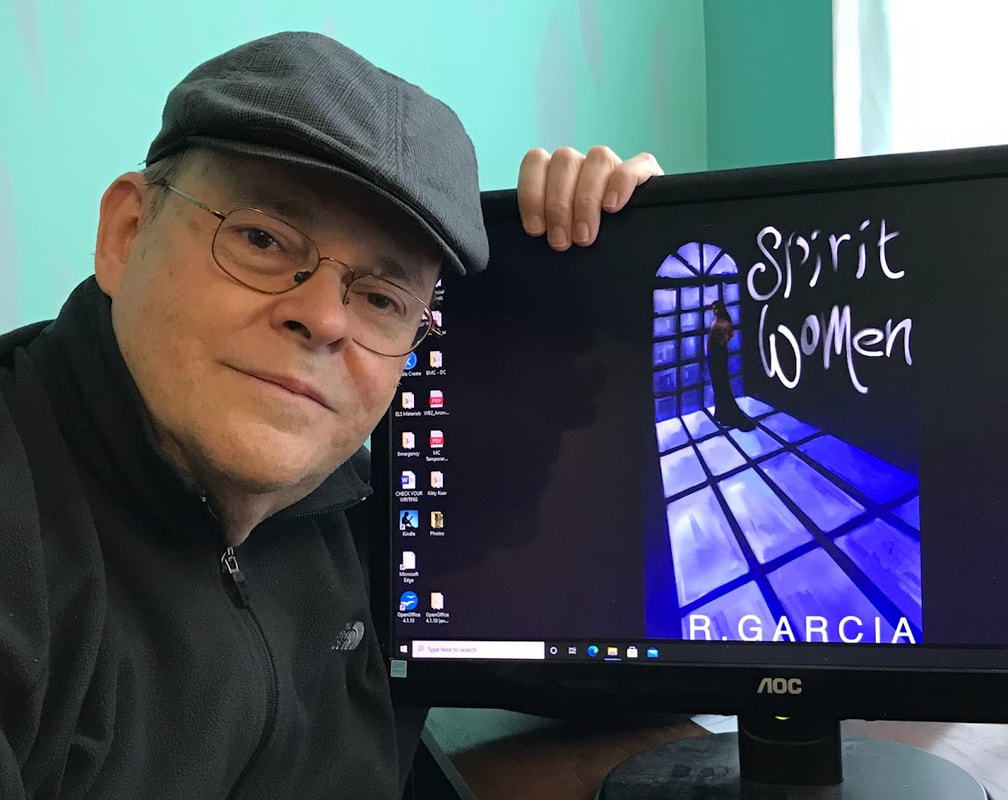 If you have read my blog for the past few years, you know I have defended science and reason against the attacks of antivaxxers, climate change deniers, creationists, flat-Earthers, Qanon, and the proponents of chemtrail, 911, COVID-19, and 2020 election conspiracies. In other words, I know the difference between reality and fiction. So when I write fiction, you know it must be good, or at the very least “interesting”! My book is available as an ebook an a paperback. You can buy the ebook for $2.99 on Amazon now. If you don’t have a Kindle, you can read it with a Kindle App on your phone or tablet, or you can read it directly on the cloud section of your Amazon account using Amazon’s inbuilt e-reader. Alternatively you can purchase the paperback version for $11.99. Thank you very much for your attention. I hope you will buy and review my book, Spirit Women. If you want to find out a little more about my book, in the video below I provide a description of the inspiration behind the 9 stories contained in the book. Photographic portrait of Sigmund Freud by Max Halberstadt is in the public domain and was modified from the original. The photograph of the author can only be used with permission. I am a scientist. I have performed research in academia, government, and industry, and I have published this research in technical journals. While a lot of research remains forever in the “knowledge” realm, I’ve had the pleasure and fortune of seeing some of my research used to support drugs that have saved lives. However, apart from this, I have written and self-published two books of fictional stories. One is a book of stories entitled The Sun Zebra about the “adventures in living” of a family composed of an unusual child named Nell, her mother Rhonda, and Nell’s father who is the narrator of the stories. The other is a very different book of short stories entitled Spirit Women about what spirit women may be and what they may want. Unlike my published research which is real and has had real-life applications and consequences, what is featured in these books of short stories is not real or at best it is a mix of reality and fiction. The stereotype of scientists is that they are nerds who are interested in one particular narrow area of human intellectual endeavor. So you would expect scientists to spend their waking hours absorbed in conducting observations and experiments, and reading and writing technical papers full of jargon about their favorite scientific subjects. However, nothing could be further from the truth. Many scientists pursue a broad range of interests ranging from philosophy and history, to art, music, and painting. Many scientists are also writers, and while it is true that most write about science, a good number of them also write science fiction and fiction. Most people would understand scientists writing about science fiction. After all, one of the purposes of science fiction is to imagine new technologies and discoveries and their effect on society. In this sense, science fiction has the role of preparing us for possible futures. The argument is similar for other types of fiction that are improbable but still possible. But why on Earth would scientists write fiction involving, for example, fantastical creatures and impossible occurrences? What is the redeeming value of a scientist writing about things that aren’t real and will never happen? Aren’t these scientists wasting their time and their training on nonsense? Also, with the current sad state of affairs in our country where people unmoored from reality are indulging in COVID-19 denial, opposition to vaccination, Qanon, or skepticism about the validity of the 2020 elections, why on Earth would our society need more fiction? There are several possible reasons why we write and even why we need fiction. One reason is that maybe that the human mind is very complex and often requires symbolism, metaphors, and inspiration that cannot always be supplied by mere evidence and facts. Additionally, besides the bare necessities, human beings require rest and recreation. Fictions allows us to explore new ways of viewing or portraying reality in a fashion that is accessible and fun in order to communicate messages or to entertain. Another reason is that fiction also allows us to explore the limits of our morals, ethics, and rules by creating unlikely scenarios that push the limits of our conventions and make us face the uncertainty and contradictions lingering in our approaches to deal with reality both at the personal and social level. Finally, fiction often serves as a form of catharsis. Most of us often face intractable problems in our personal and social lives that have no easy or obvious solutions. Fiction often provides us with a serious and hopelessly unsolvable problem and then solves it for us against all odds. In my specific case, I wrote The Sun Zebra, to reacquaint myself and my readers with the wonder of what it is to see the world through a child’s eyes. So if you read my book, and that leads you to have a better rapport with your child, then I consider that a positive effect of fiction. I wrote Spirit Women to explore the motivations and desires of, well…spirit women. So if you read my book, and it gives you a thrill, then that’s a positive effect of fiction. However, if you read some fringe website, and that leads you to accept a crazy conspiracy theory, then that’s a negative effect of fiction. You have to be careful with the fiction you consume and how you internalize it. You should always strive to keep fiction separate from reality. Whether you are a scientist or a regular person, fiction is part of your life. It may be in the stories you like to tell, in the material you like to read, and may even be part of what you believe and how you believe it. The trick is to not allow ourselves to get too carried away ignoring the evidence and the facts and replacing reality with fiction. The images of the book covers belong to the author and cannot be used without permission. |
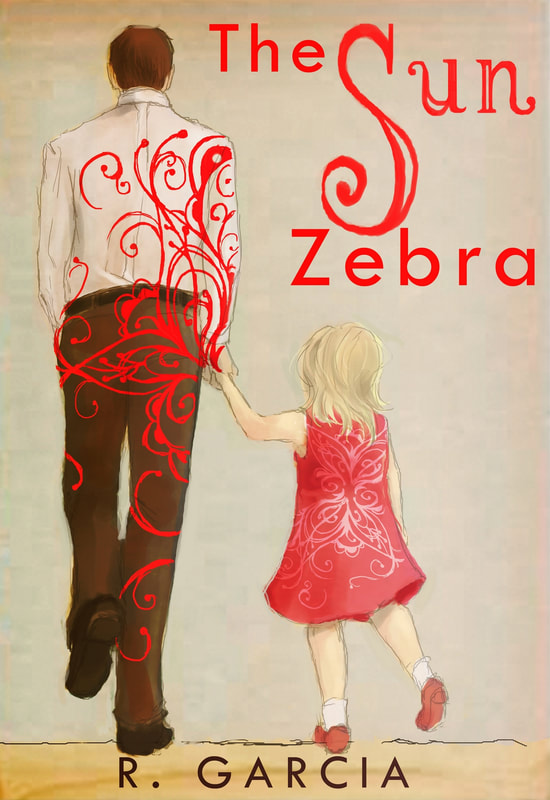
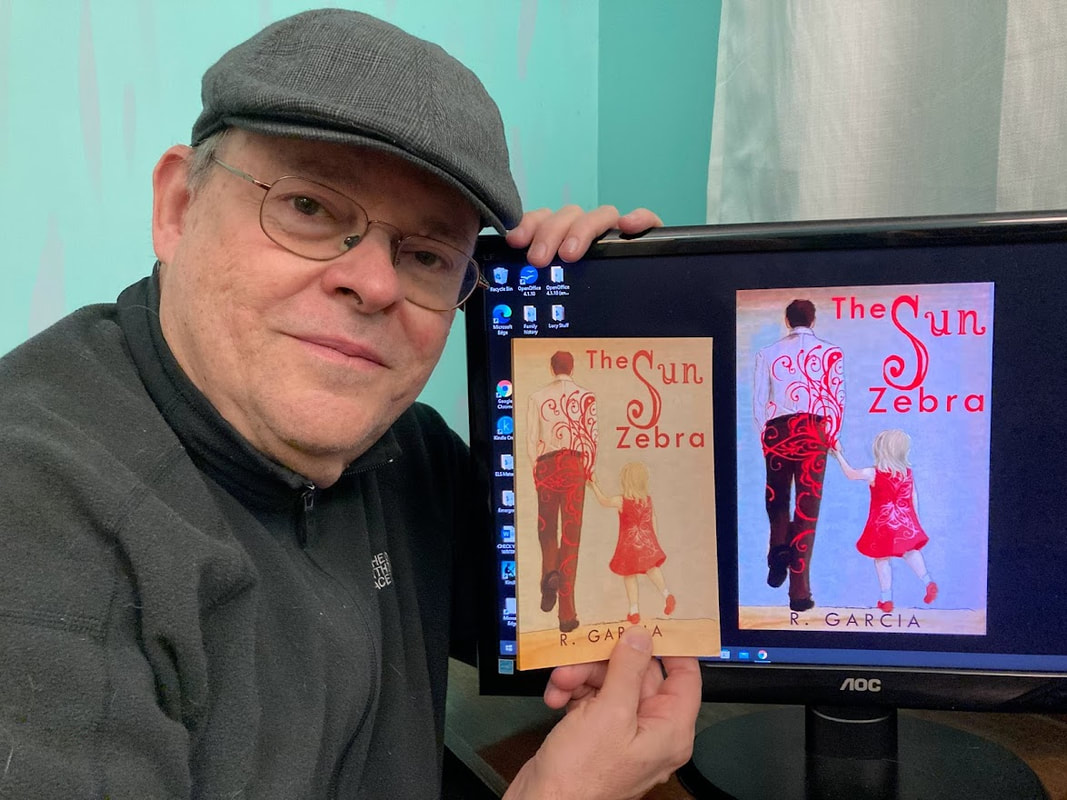
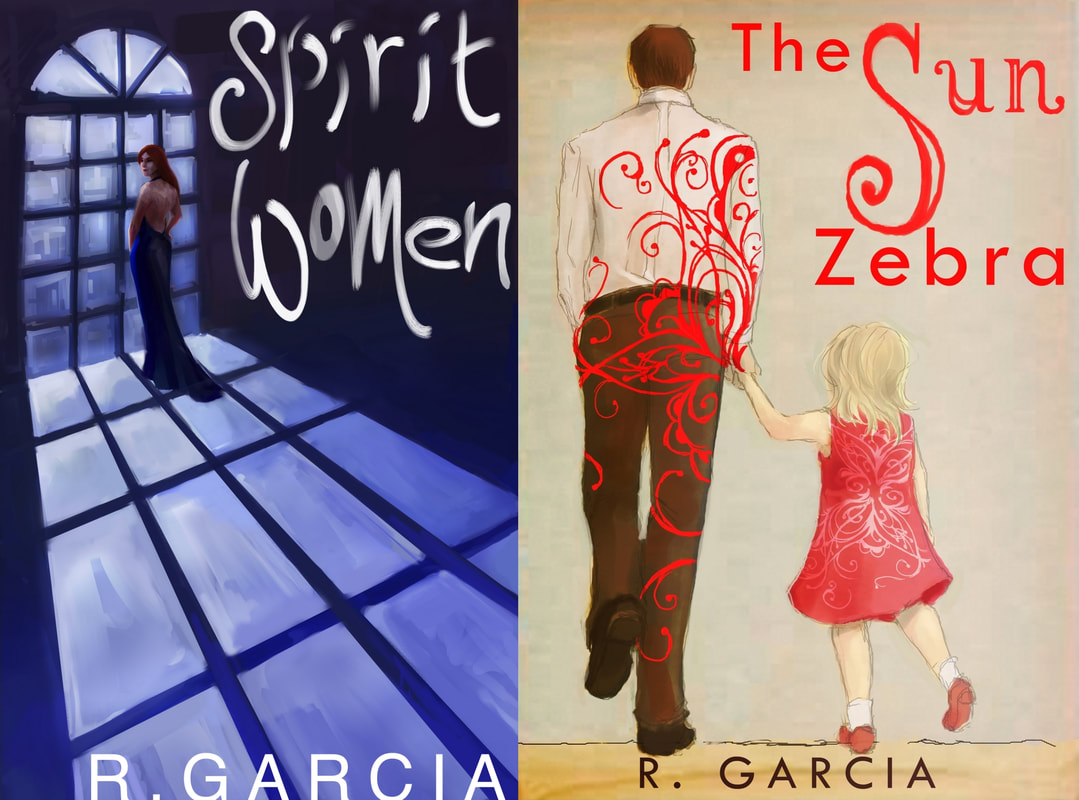
 RSS Feed
RSS Feed